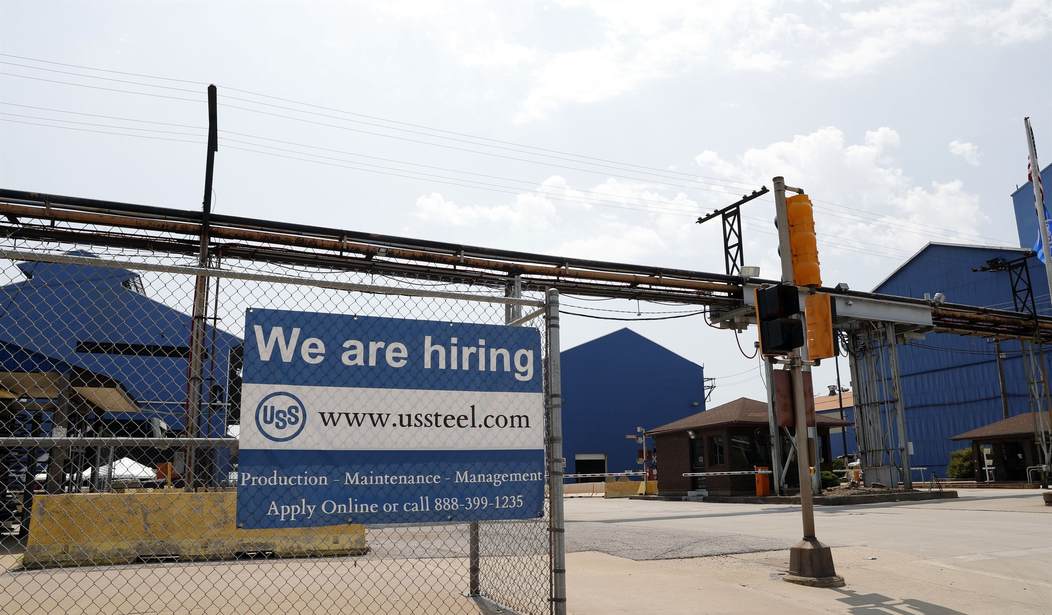One of the great “mysteries” that has been puzzling lawmakers in the swamp is the fact that the American labor force is still “missing” more than three million workers who were employed before COVID struck and could be working today. Demographically, this group slants strongly toward young males, deflating the idea that a lot of older people who lost their jobs during the shutdowns simply decided to retire early. The labor force participation rate remains 1.3% lower than before the pandemic began and there are roughly six million jobs still unfilled across the country. So where are all of these people and why haven’t they gone out to take new jobs? Fox Business reports this week that one reason may be found in the lucrative benefits from a combination of extended unemployment payments and Obamacare subsidies that dole out enough cash for many people to get by while simply staying home.
The labor force participation rate was 62.1% last month, notably lower than the 63.4% mark it was at before the coronavirus pandemic struck the United States in March 2020.
There are numerous reasons that unemployed Americans aren’t entering the workforce, including ongoing fears of COVID-19, disabilities such as “long COVID,” and other care responsibilities. One factor that is contributing to the relatively low labor force participation rate is the combination of unemployment benefits and recently expanded Affordable Care Act (ACA) subsidies, according a new study by the nonprofit Committee to Unleash Prosperity.
In 14 states, unemployment benefits and ACA subsidies for a family of four with two people not working amounts to an annualized equivalent of $80,000 a year in wages and benefits, the study found.
The amount of money a family requires to get by varies wildly from state to state, but an annual income of $80K will allow a family of four to make ends meet in many areas. As noted above, 14 states are doling out that much. In three states, Washington, Massachusetts, and New Jersey, those benefits add up to more than $100K per year.
Now, look at the median household income in those states. In Washington, it’s 82K. In both New Jersey and Massachusetts, it’s 89K. In more rural states like Arkansas, the combined benefits may be “only” 80K, but the median household income there is 52K.
Those families have a choice of going back to their full-time jobs or staying home and playing Call of Duty while bringing in ten to twenty thousand dollars more per year. Obviously, a significant number of people have chosen option B.
When you find yourself in a position where you have to rely on welfare or any form of government benefits, the system is supposed to give you enough money to “get by” so you don’t fall through the cracks entirely. It’s not designed to provide you with more money than you would have earned by working. As these figures appear to demonstrate, there are plenty of people who will opt for “free money” over employment, particularly when not working is more lucrative.
This is an ancient debate in our country and it comes up whenever discussions of social service programs arise. America has long attempted to be a compassionate nation where the government will take care of those who can’t make it on their own. But the analogy of society being like a cart with some people pulling it and some riding in it is accurate. When you have too many people riding in the cart and not enough pulling it, the cart grinds to a halt.
Unfortunately, there is almost nobody in Washington who would raise their hand to say that perhaps we went a bit overboard with all of these benefits. They will immediately be branded (primarily by Democrats) as heartless oligarchs who want to crush the impoverished peasants, and that’s a great way to lose your next election. Meanwhile, some of those impoverished peasants are rising up the Call of Duty leaderboard at an astonishing pace.








Join the conversation as a VIP Member